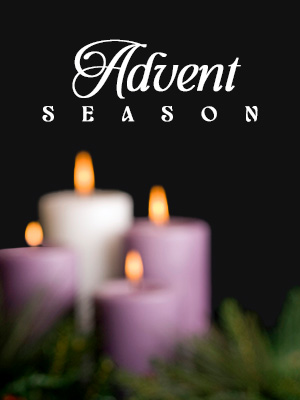Plenary indulgences: What they are and how to get them in the Jubilee Year

Top: A woman at prayer, and a priest hearing a penitent’s confession in Medjugorje. The requirements for a Jubilee Year plenary indulgence also include prayer for the pope’s intentions and partaking in the sacrament of reconciliation. Bottom: A priest distributes Holy Communion, and the Holy Door of the basilica of St Mary Major in Rome. The requirements for a Jubilee Year plenary indulgence include reception of the Eucharist and a pilgrimage to a designated church or shrine.
The Holy Year 2025 will run until January 6, 2026 — plenty of time to obtain Jubilee plenary indulgences. Here we discuss the origin of indulgences, how they adapted over time, and how to receive one.
During the Jubilee Year, the Church invites the faithful in a special way to gain a plenary (or full) indulgence by performing certain acts of piety. Let’s look at what a plenary indulgence is and how it is obtained.
What is a plenary indulgence?
A plenary indulgence is the complete remission of all temporal punishment due to sin, granted under specific conditions. The Church teaches that sin has two primary consequences: the guilt of the sin itself and the temporal (or of-this-world) punishment that follows.
Historically, during the sacrament of reconciliation, the penance imposed on a repentant sinner was often public, allowing the community to witness it. Only after the penance —sometimes lasting many months and involving acts such as fasting or charitable works — was completed would the priest grant absolution. At that point, the sinner was accepted back into the community of the faithful.
However, what happens if the penitent becomes too ill to complete some or all of the prescribed acts of penance or is not expected to live much longer? This is where the concept of indulgence originated. For example, if a penance required 100 days of fasting but the penitent could manage only 50, the bishop could remit the remaining 50 days of temporal punishment. This is known as a partial indulgence. If it was impossible to perform the entire act of penance, the bishop could grant a plenary indulgence instead.
In a similar way today, following established regulations, a Jubilee plenary indulgence may be granted to repentant sinners who have not fully completed the canonical penance imposed during the sacrament of reconciliation.
While the guilt of sin is forgiven through reconciliation, the temporal punishment may still remain. A plenary indulgence eliminates this temporal punishment, enabling the individual to be fully reconciled with God and the Church regarding the consequences of sin — essentially clearing the slate.
The Catechism of the Catholic Church explains that “an indulgence is a remission before God of the temporal punishment due to sins whose guilt has already been forgiven” (1471). Thus, a plenary indulgence, which is the complete remission of this temporal punishment, allows the faithful to be fully reconciled, not only with God but also in the sense of the consequences of their actions.
Obtaining a plenary indulgence requires sincere repentance, a genuine desire to live a holy life, and an openness to God’s grace. It cannot be achieved merely by going through the motions.
Wasn’t there a scandal about indulgences?
There was — 500 years ago. It was a practice involving the exchange of money for indulgences, usually as a fundraising method for construction projects, that caused the scandal which helped spark the Reformation. It was never officially approved by the Catholic Church. The Council of Trent in the 16th century absolutely condemned the selling of indulgences, and the pope rescinded all bought indulgences.
The question of indulgences for sale in the pre-Reformation Church was dealt with in our “Your Questions Answered” column in the October 2024 issue.
The indulgences we are invited to receive particularly during the Jubilee Year are the fruits of acts of piety, undertaken by a person seeking reconciliation with God.
Can plenary indulgences be obtained only during a Jubilee Year?
While Jubilee Years, a special time of grace and reconciliation, offer specific opportunities for gaining indulgences, the Church provides the faithful with the means to obtain plenary indulgences throughout the liturgical year.
The conditions for obtaining a plenary indulgence apply at any time, not just during a Holy Year.
Jubilee Years, however, are particularly significant because they may include special indulgences and opportunities for spiritual renewal, such as the entering through the Holy Doors in designated churches (see our December 2024 issue), which symbolise the invitation to enter into a deeper relationship with God and the Church. The Church encourages the faithful to take advantage of these special times for grace, but the practice of obtaining indulgences is not limited to these periods.
How do I obtain a plenary indulgence?
Generally, to obtain a plenary indulgence, the faithful must meet several conditions, which, according to Pope John Paul II’s 1999 revision of the Enchiridion Indulgentiarum (or Handbook of Indulgences), include:
l Having the intention to gain the indulgence, which also assumes our rejection and detestation of our sins.
l Performing the prescribed work associated with the indulgence, such as praying specific prayers, visiting certain holy places, or performing acts of charity.
l Receiving the sacraments of reconciliation and Holy Communion.
l Praying for the intentions of the pope. This can be done through any prayer, such as an Our Father or Hail Mary.
During the Jubilee Year, plenary indulgences can be obtained by passing through the Holy Door of at least one of the major Roman basilicas during the Holy Year 2025, or entering a basilica in the Holy Land, or a local church or shrine designated by the local bishop. This must be accompanied by going to confession, receiving Communion and praying for the pope’s intentions.
In addition to pilgrimages to designated churches and shrines, other paths towards a Jubilee indulgence include working to defend human life or assisting migrants and refugees, or fasting “at least for one day of the week from futile distractions” such as social media, according to norms published by the Apostolic Penitentiary, the Vatican court dealing with matters of conscience and with the granting of indulgences
The basic conditions, according to Apostolic Penitentiary head Cardinal Angelo De Donatis, are that the person is “moved by a spirit of charity”, is “purified through the sacrament of penance and refreshed by Holy Communion”, and prays for the pope. Plenary indulgences “can be applied in suffrage to the souls in purgatory”, he said.
Hold on! A plenary indulgence is transferable?
Yes, the Church affirms that the faithful can apply indulgences to the soul of a deceased person in purgatory. This is an act of charity and solidarity with those who have died and are undergoing purification. The Catechism notes that “the Church also commends almsgiving, indulgences, and works of penance undertaken on behalf of the dead” (1032).
For the application of indulgences to the dead, it is important to have the explicit intention to obtain an indulgence for that specific purpose. The Church encourages the faithful to pray for the deceased, particularly through the offering of indulgences, as this can aid them in their journey toward heaven.
Must all these requirements be met within one day?
While the sacramental confession and the reception of Holy Communion can occur within a week of the indulgenced act, the intention and the performance of the act itself, along with the prayer for the pope’s intentions, should ideally be completed on the same day.
Is there a limit to the plenary indulgences I may obtain?
There are no limits, but a person can receive only one plenary indulgence for themselves per day. If one performs different acts that each grant a partial indulgence, multiple partial indulgences can be obtained in one day.
If you fulfil the conditions for multiple plenary indulgences in one day, you may receive them, but only one can be applied to yourself in a single day.
See also paragraphs 1471-1479 of the Catechism of the Catholic Church, which deal with indulgences.
Published in the January 2025 issue of The Southern Cross magazine
- Book of Selected Works by Fr Albert Nolan Released - November 26, 2025
- Recovery and Victory Seminar at Mater Dei Pastoral Centre - November 22, 2025
- Invest in Community: CATHCA’s Urgent Call ahead of Global Fund Summit - November 20, 2025





